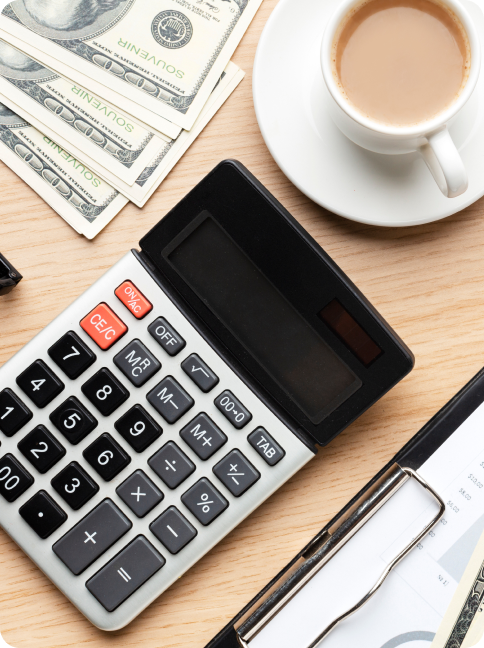Chargeback
Education and Prevention

What Is a Chargeback—and Why Does It Happen?
As your partner in payments, we want to make sure you’re protected from the growing threat of fraudulent chargebacks. We’ve seen a noticeable uptick in cases—especially during high-volume seasons like the holidays—and it’s more important than ever to stay informed and prepared.

A chargeback occurs when a customer disputes a credit or debit card transaction. In many cases, it’s legitimate. But increasingly, merchants are being hit by fraudulent chargebacks that result in lost revenue, lost product, and added fees.
There are two common types of fraud that lead to chargebacks:
1. Criminal Fraud
A stolen card is used to make a purchase—typically online or over the phone. Later, the real cardholder notices the charge and disputes it. Unfortunately, the merchant often loses both the product and the payment.
2. Friendly Fraud
A customer knowingly makes a purchase but later claims they didn’t authorize it. This could be due to buyer’s remorse, confusion, or intentional deception.
Many businesses assume that if a transaction is approved, it’s safe. Unfortunately, approval does not guarantee protection. The merchant—not the bank—carries the burden of proof.
To win a dispute, you must be able to clearly show:
- The transaction was valid and authorized
- The customer received what they paid for
Our Top 5 Chargeback Prevention Strategies
These best practices can greatly reduce your risk—especially for card-not-present (CNP) transactions such as online, phone, and app-based orders.
Enable 3D Secure Authentication
Use enhanced verification tools like:
- Visa 3D Secure
- Mastercard SecureCode
- Discover ProtectBuy
- American Express SafeKey
These programs reduce fraud and shift liability away from you. They’re not just for websites—you can also use them in mobile apps, recurring billing, and virtual terminals.
✅ Why it matters: 3D Secure helps prove the cardholder approved the purchase, giving you a better shot at winning disputes.
Always Use AVS and CVV Checks
Validate the billing address (AVS) and the 3-digit CVV code to confirm the customer is using their actual card.
- Only ship to AVS-confirmed addresses
- Be extra cautious with high-value or first-time orders
✅ Why it matters: These simple checks flag suspicious activity and strengthen your case in a dispute.
Watch for Suspicious Activity
Stay alert to warning signs, especially during the
holiday rush:
- Billing and shipping addresses don’t match
- Multiple failed payment attempts
- Bulk orders from first-time customers
- Several cards used for a single purchase
✅ Why it matters: Spotting red flags early can prevent fraud before it happens.
Respond Quickly to Retrieval Requests
If a bank asks for transaction documentation (a “retrieval request”), reply promptly and thoroughly.
Include:
- Receipts
- Order confirmations
- Delivery tracking
- Communication with the customer
✅ Why it matters: A delayed or incomplete response often results in an automatic chargeback loss.
Keep Detailed Records
Maintain compelling evidence for every transaction.
Helpful items include:
- AVS and CVV match results
- Order confirmation emails
- Proof of delivery (with tracking number)
- IP address and device data used at checkout
- Signed documents, if available
✅ Why it matters: The more proof you have, the better your chance of fighting and winning a chargeback.
A Friendly Reminder
Even with the best systems in place, NO TRANSACTION IS 100% CHARGEBACK-PROOF.
That’s why the most secure method of payment remains:
- In-person
- Card-present
- EMV chip or contactless payment
Whenever possible, encourage in-store pickup, tap-to-pay, or chip card transactions—especially for high-ticket items.
We’re Here for You
We understand how stressful and frustrating chargebacks can be—especially when you feel like you’re doing everything right. You’re not alone in this.
If you need help:
- Setting up fraud tools like 3D Secure
- Understanding your AVS and CVV results
- Responding to disputes or document requests
👉 Our team is here to help. Reach out anytime. Your success and protection are our top priority.

Turnkey does not provide legal, tax, accounting, or investment advice, and is not a fiduciary, co-employer, or joint employer of the Client’s employees. Responsibility for complying with federal, state, local, and international laws—including but not limited to wage and hour regulations—rests solely with the Client. Turnkey is not liable for the Client’s compliance and does not offer legal or financial guidance. The Client is also responsible for retaining any documents exchanged with or provided by Turnkey in accordance with applicable laws.
